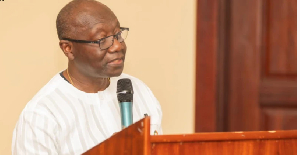Kweku Collins is not famous, although he’s been on one of New York City’s largest radio stations, Hot 97. Kweku Collins is not a skateboarder, although he still skateboards regularly and briefly flirted with a professional skate career.
Kweku Collins is also not from Chicago, although it’s easy to simply say so. He grew up just minutes away from the city in Evanston, where he still lives, connected enough to the Chi’s booming scene to be signed to Closed Sessions and work with Chicago artists like Jamila Woods, but Evanston was just far enough away to make him feel like a bit of an outsider to the city’s scene.
Kweku Collins is not strictly black or white, isn’t a rapper but raps, isn’t a singer but sings, is no longer a kid but as a 19-year-old pursuing his dreams is learning how to be his own man. Kweku Collins is many things and not many things simultaneously, living proof of how stupidly limiting labels can be. So let’s just call him an artist.
Kweku Collins’ biography is largely just a Google search away, so when we spoke we talked about his art, starting with his new album, Nat Love. Nat Love, the person, was a black cowboy who was a Wild West legend in his own right for his exploits. There had to be a deeper reason behind the album’s title, a spirit Collins was attempting to channel.
“He was overall a real bad motherfucker. The story of Nat Love is empowering, that’s what I carried through,” Collins explained. “It’s not so much connected to the person, but the name that goes with the concept. The feeling of empowerment, in it’s simplest way it’s about figuring life out, trying to find yourself as a person and where you belong in the world.”
That’s far from empty talk. Listen again to the album. Listen to “Stupid Rose,” listen to “Death of a Salesman,” a song he described as being about turning fear into defiance. From “Vanilla Skies” to “The Outsiders,” all of the music hums with the energy of Nat Love. Or to put it more bluntly, Collins is a bad motherfucker figuring out where he belongs in the world.
It’s exceedingly rare to hear a 19-year-old with any vision for their life, I certainly didn’t have one at that age, let alone a mission they’re trying to fulfill with their art, but this idea of usefulness, of music that extends past your personal horizon, is one Collins has already cultivated, influenced perhaps by his father, who’s a musician and a storyteller.
“Where am I going to be five years from now, ten years from now?” Collins asks, pausing for a long, thoughtful moment. “I just want my music to be received by the people who could use it. Whatever people can take away from my music, I want them to take it. Whatever they need at the time, to support them, I want to give that to them. Not in the way of, ‘You need my art.’ More like, ‘If you need something, here.'”
You could call Kweku Collins an outsider, a misfit, and you wouldn’t be wrong. It is true that he doesn’t fit neatly into hard categories. But music has the distinct power to connect outsiders in a way that proves the supposed minority is in fact a majority, that normal is an illusion, that we’re all faced with so many of the same joys and pains and doubts and hopes. It’s a lot for anyone to take on, let alone a 19-year-old, but Kweku Collins doesn’t have any choice. It’s what he does, who he is. He’s an artist.
Entertainment of Sunday, 24 July 2016
Source: djbooth.net













